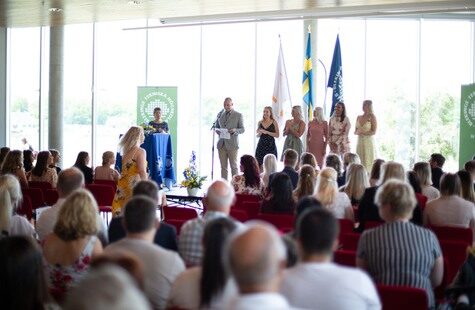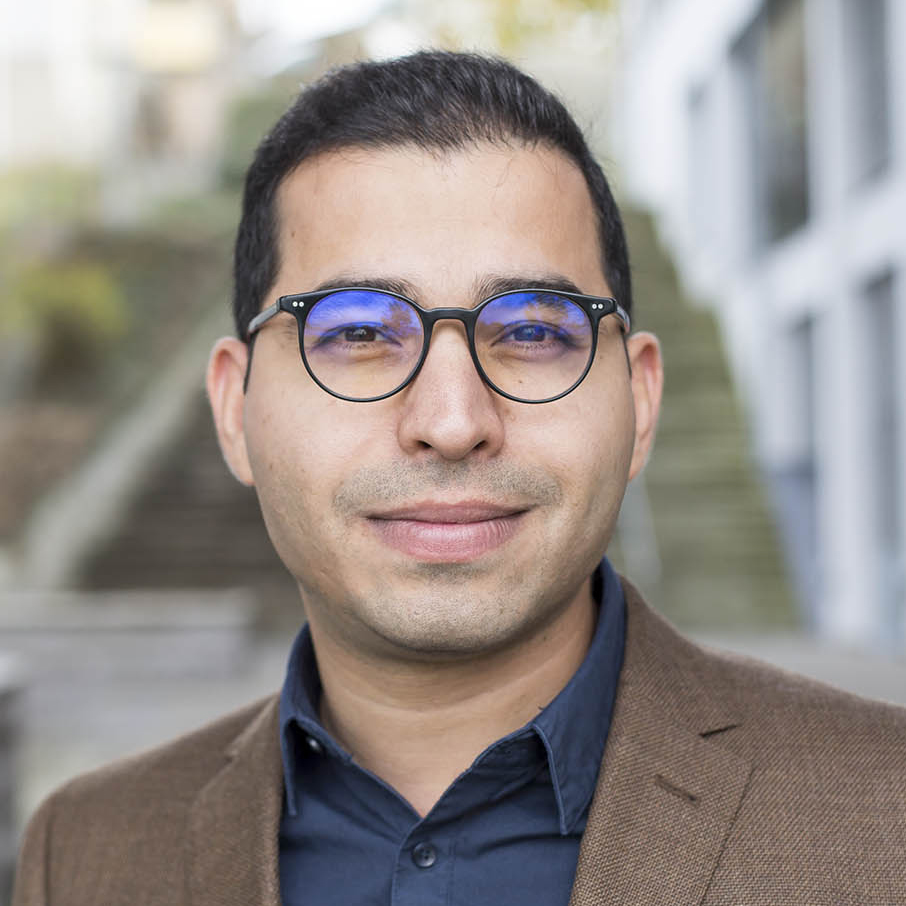Master’s programme in Machine Learning, Sensors and Systems
120 credits
- Period : 2025-September-01 until 2027-June-06
- Location: Campus Karlskrona
- Type of instruction: On campus, day-time, full-time
- Application code: BTH-90599
- Language of instruction: English
- Programme syllabus: Download
Welcome letter (published 3 weeks before start)
A skill that connects two important areas
We live in a world where we depend on a multitude of complex technological systems, such as food, energy and communication systems. Future-proofing these systems requires innovation that combines different fields. The Master’s Programme in Machine Learning, Sensors and Systems brings together the disciplines of Electrical Engineering and Computer Science, both of which are crucial to developing the sustainable technologies of tomorrow.
What will you study?
The programme gives you the ability to combine systems engineering skills and computer science AI skills. You will build knowledge in signal processing, control engineering, mechatronics (robotics), sensors, machine learning and AI. You will also study statistics and optimisation. This knowledge is combined in a project course and in the final degree project, which can be chosen in either electrical engineering or computer science. You will learn to recognise different solutions in different disciplines – and to decide which solution is optimal.
What does the future look like?
The programme has a strong engineering and electronics focus and aims to fill the gap between those who know systems engineering and AI experts. Skills are needed that combine AI with signal processing and sensors, among other things, and the programme provides broad expertise in these areas. The programme gives you the ability to determine when complex AI solutions are required – and when a problem can be solved by simple model-based signal processing. The structure and content of the programme are based on discussions with the companies we work with, both in research and education and their needs and visions for the future. The labour market in the field is good and expected to grow as more and more AI solutions are implemented.
Please contact the Admissions Office with any questions regarding the entry requirements.
The tuition fee is SEK 70,000 per semester. One semester corresponds to 30 ECTS credits. EU/EEA citizens are not required to pay fees.
BTH offers a scholarship programme for both prospective students and current students. If you are a female citizen of one of ten eligible countries and you apply for this program as your first choice, you can also apply for the Swedish Institute Scholarship Pioneering Women in STEM for prospective students. Learn more about scholarships.
Do you have any questions about the programme? Please send them to us using the form on the International Student Guide.
The programme is brand new and some information may be missing from this page. We’ll fill it in as soon as we can, but please get in touch if you have any questions.
Courses and content
Note! The course list is tentative. See the programme syllabus for an established course list.
Courses autumn semester 2025
Machine Learning, 6 hp
Introduction to Bayesian Statistics, 3 hp
Signals and Systems, continuation course, 6 hp
Introductory Course in Machine Learning, Sensors and Systems, 3 hp
Signals and Systems, basic course, 6 hp
Applied artificiell intelligens, 6 hp
Optimization, 6 hp
Electromagnetic Field Theory, 6 hp
Courses spring semester 2026
Project course in data analysis, 6 hp
Advanced Machine Learning, 6 hp
Time Series and Predictive Analytics, 6 hp
Deep Machine Learning, 6 hp
Automatic Control, continuation course, 6 hp
Applied Machine Learning, 6 hp
Deep Learning, 6 hp
Courses autumn semester 2026
Research Methodology in Computer Science, 6 hp
Sensor Systems, 6 hp
Security in AI Systems, 6 hp
Computer Vision, 6 hp
Mechatronics including robotics, 6 hp
Research Methodology for Engineers, 6 hp
Radar Systems, 6 hp
Courses spring semester 2027
Students who apply for a course or programme, and meet the general and specific entry requirements, compete with one another for available places. When there are more qualified applicants than there are places for an education, the places are distributed through a selection. Read about the selection methods and procedure here.
The study programmes at BTH are continuously monitored and developed through yearly follow-up dialogues, course evaluations after each completed course, and programme evaluations. Results from follow-ups and evaluations can lead to changes in the programmes. These changes are always communicated to the students.
Each educational programme is tied to an advisory board that discusses issues such as the quality of the programme, its development, and relevance for the labour market. In the advisory board, or a committee to the advisory board, teachers, external members, students and alumni are represented.
About the programme
The Master’s programme in Machine Learning, Sensors, and Systems provides a comprehensive education focusing on advanced technologies. With two specialized tracks in Electrical Engineering and Computer Science, you can tailor your studies to match your career goals. The programme combines theoretical knowledge and practical skills in AI, signal processing, control theory, and sensor technology for innovative solutions and intelligent systems.
During the first year, you will learn to apply the methods and skills that form the basis of the programme. This includes courses in signals and systems, control theory, statistics, and time series analysis, as well as several courses regarding artificial intelligence and deep learning in both tracks. Additionally, the two tracks offer more specialized courses, with the Computer Science track emphasizing machine learning, while the Electrical Engineering track covers topics of optimization and electromagnetic field theory.
In the second year, you have the opportunity to study courses that are linked to different application areas and current research projects. This includes courses in research methodology, sensor systems, computer vision and robotics. Moreover, the Electrical Engineering track offers a course in radar systems, while the Computer Science track provides a course regarding security in AI systems.
In the final semester, you will write your thesis based on the methods and skills you have learnt and the track you have chosen. Ambitious students are offered the opportunity to conduct the thesis within ongoing research projects in collaboration with industry.
Good to know
Look below for information about how to apply, entry requirements and important dates.







